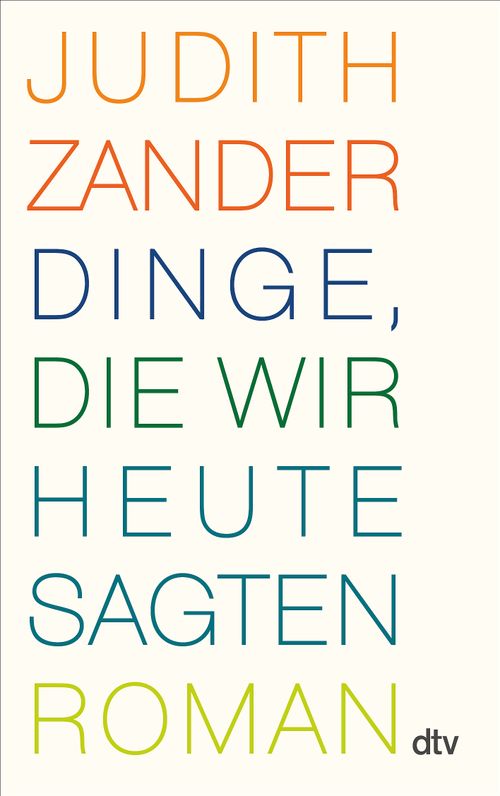Things We Said Today
Fiction, Literary Fiction
Western Pomeranian, 1999, in the small village of Bresekow. When old Frau Hanske dies, her daughter Ingrid flies in for the funeral with her family from Ireland. Ingrid had fled Bresekow many years ago. Her visit brings about many changes in the village, raising questions old and new, particularly for the Ploetz and Wachlowski families. The villagers start to talk about their present-day lives and their past entanglements. Bresekow was always a small world, narrow-minded and isolated – now it’s on the brink of decay.
Judith Zander gives three generations their voice. In doing so, she opens up a panorama reaching from the time immediately following World War II, through the years under the Communist German Democratic Republic, and all the way to the present. But this book is about far more than family stories. With powerful language and virtuoso narrative skill, the author tells of a tight-lipped community in North-Eastern Germany. It is a story about everyday living in the provinces, about friendship and betrayal, and about life itself.
Shortlist Ingeborg-Bachmann-Award 2010
3sat-Award 2010
Shortlist German Book Prize 2010
Judith Zander was born in Anklam in 1980, and today she lives in Jüterbog. She has received multiple awards for her publications, including the 3sat Prize of the Ingeborg Bachmann Competition and the Uwe Johnson Advancement Prize. Her last novel Things We Said Today was shortlisted for the German Book Prize. With dtv, she most recently published a poetry volume titled manual numerale.
Western Pomeranian, 1999, in the small village of Bresekow. When old Frau Hanske dies, her daughter Ingrid flies in for the funeral with her family from Ireland. Ingrid had fled Bresekow many years ago. Her visit brings about many changes in the village, raising questions old and new, particularly for the Ploetz and Wachlowski families. The villagers start to talk about their present-day lives and their past entanglements. Bresekow was always a small world, narrow-minded and isolated – now it’s on the brink of decay.
Judith Zander gives three generations their voice. In doing so, she opens up a panorama reaching from the time immediately following World War II, through the years under the Communist German Democratic Republic, and all the way to the present. But this book is about far more than family stories. With powerful language and virtuoso narrative skill, the author tells of a tight-lipped community in North-Eastern Germany. It is a story about everyday living in the provinces, about friendship and betrayal, and about life itself.
Shortlist Ingeborg-Bachmann-Award 2010
3sat-Award 2010
Shortlist German Book Prize 2010


.jpg)